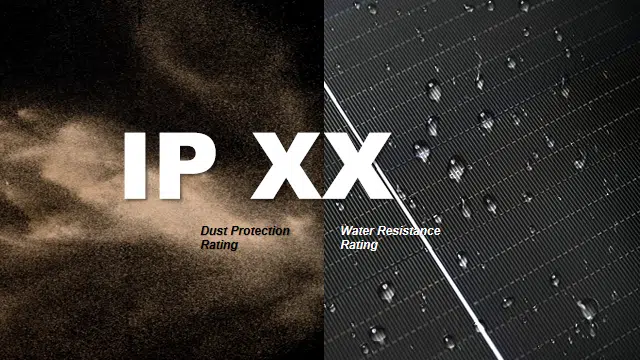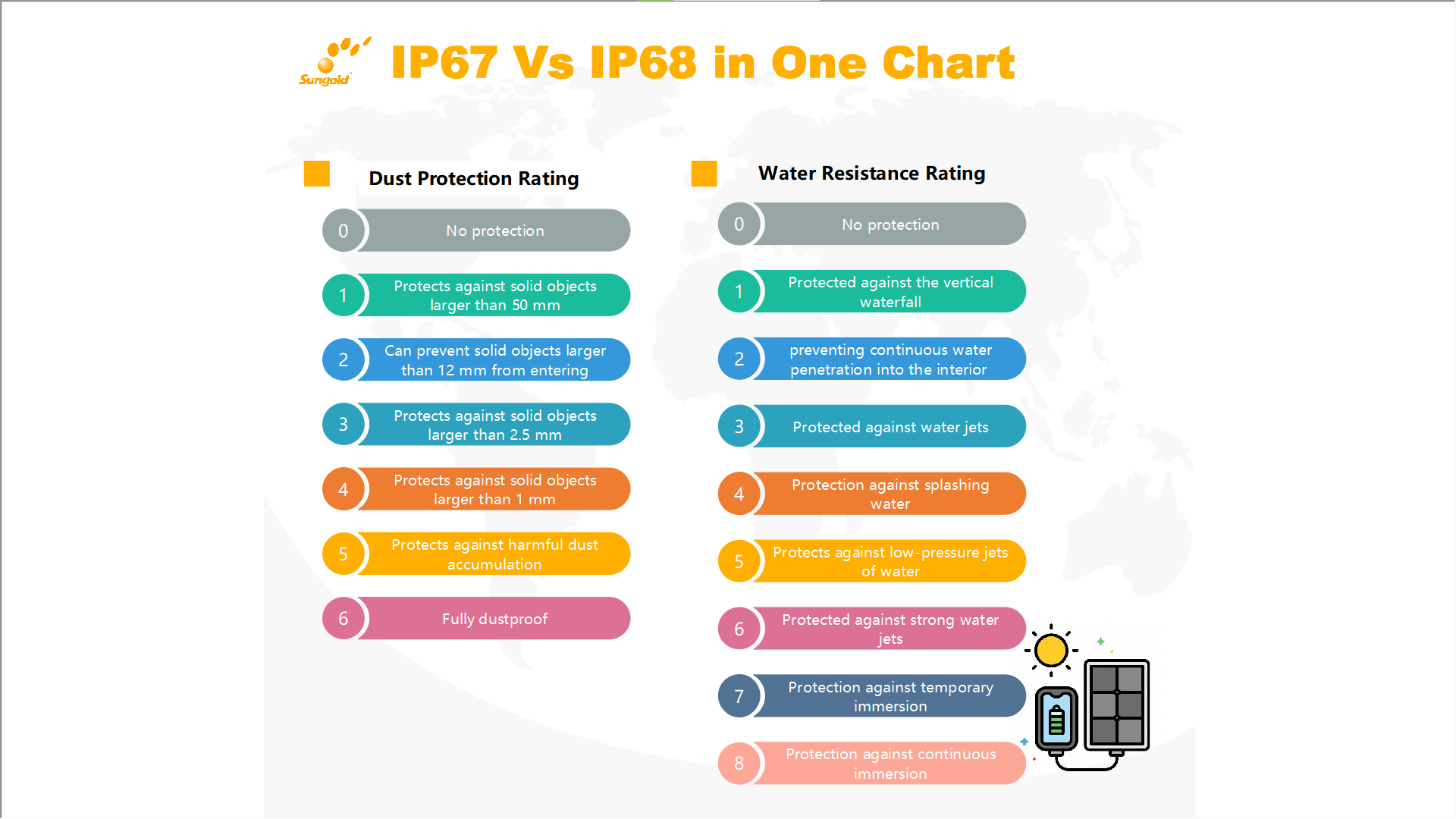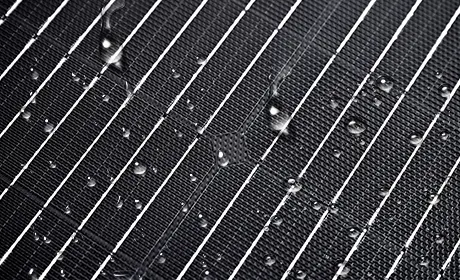IP code is important when purchasing digital products and electronic devices. Many brands have mentioned the concept of IP67 and IP68 in product launches to validate the performance of their products, but what is the actual meaning of these two terms and what is the difference between IP67 vs IP68?
IP, or Ingress Protection, is a rating system that indicates how well a device is protected against dust and water. the first digit of the IPXx rating, X, refers to protection against solid particles, and the second digit of the rating, x, refers to protection against liquid.
In this detailed IP68 vs IP67 comparison guide, we will give you a detailed overview of their importance and where the main differences lie.
What Is the IPXx?
The IP (ingress protection) is a standard set by the International Electrotechnical Commission to evaluate the protection and durability standards of electrical equipment against dust and water.
The IP protection rating consists of two numbers, the first number X indicating the dust protection rating and the second number x indicating the water resistance rating. The higher the number, the better the protection.

Dust Protection Rating (First Digit)
- IP0x: No protection.
- IP1x: Protects against solid objects larger than 50 mm.
- IP2x: Can prevent solid objects larger than 12 mm from entering.
- IP3x: Protects against solid objects larger than 2.5 mm.
- IP4x: Protects against solid objects larger than 1 mm.
- IP5x: Protects against harmful dust accumulation.
- IP6x: Fully dustproof.
Waterproof rating (Second Digit)
- IPX0: No protection.
- IPX1: Protected against the vertical waterfall, preventing water droplets from falling in when the product is placed for indoor use.
- IPX2: Protected against the tilted water flow, preventing continuous water penetration into the interior when the product is tilted up to 15°.
- IPX3: Protected against water jets, such as rainwater, when the product is tilted at a maximum of 60°.
- IPX4: Protection against splashing water, able to withstand water jets from all directions, simulating a rain splash situation.
- IPX5: Protects against low-pressure jets of water with an inner diameter of 6.3mm from the nozzle.
- IPX6: Protected against strong water jets, capable of withstanding strong water jets with an inner diameter of 12.5mm from the nozzle.
- IPX7: Protection against temporary immersion, able to withstand submergence under water for a specified period and under pressure.
- IPX8: Protection against continuous immersion, the device can be continuously submerged underwater and maintain normal operation.

IP67 Vs IP68
IP67 :
An IP67 waterproof solar panel indicates that they are “dust-tight,” providing complete protection against the intrusion of dust, and are also capable of withstanding temporary immersion in water up to a depth of 1 meter (approximately 3.3 feet) for up to 30 minutes.
Solar panels with an IP67 rating are well-suited for environments where they might be exposed to rain, snow, or occasional submersion in water. They are commonly used in outdoor and marine applications.

IP68:
An IP68 rating offers an even higher level of protection than IP67. Solar panels with an IP68 rating are also “dust-tight” and can withstand immersion in water for an extended period, typically beyond 1 meter (3.3 feet) and for longer durations than IP67.
IP68-rated solar panels are ideal for applications where the panels will be continuously submerged in water or exposed to extremely wet conditions, such as in underwater solar installations, aquatic systems, or environments with heavy and prolonged rain.
According to the explanation of IPXx above, IP67 is both dustproof grade 6 and waterproof grade 7, i.e. Fully dustproof while temporary immersion will not affect normal use, and can withstand the pressure of being immersed in water for a specified time. IP68 means that it is both dustproof to class 6 and waterproof to class 8, i.e. it is completely dustproof, and the device can be submerged underwater for extended periods and remain operational.
To conclude, the main difference between IP67 vs. IP68 is that IP68 products can remain undamaged underwater for longer periods, while IP67 allows the product to be waterproof only temporarily.
Why is IP67 vs IP68 So Important?
Waterproof solar panels with dust and waterproof ratings offer several key advantages:
Enhanced Safety Assurance: IPXX protection level testing ensures that the product remains resistant to dust and water exposure during usage, ensuring the safety of the product.
Prolonged Product Lifespan: The IPXX protection ratings are crucial in extending the product’s life. Exposure to dust and water can accelerate wear and aging, potentially shortening the product’s lifespan.
Elevated Product Quality: IPXX protection level testing acts as a quality benchmark, demonstrating that the manufacturing processes and materials used are of high standards. This, in turn, enhances the overall quality of the product.
Market Entry Compliance: Attaining protection level certification meets market entry standards and boosts the product’s competitiveness in the market. This certification becomes a crucial factor for consumers when comparing similar products.
Cost-Effective After-Sales: In the event of product failure, IPXX protection level testing helps identify the cause of the failure. Without such testing, diagnosing issues becomes challenging, leading to increased after-sales costs associated with product support and repairs.
In summary, the IP protection test serves as a comprehensive tool to verify and guarantee the dustproof and waterproof performance of a product. This not only enhances reliability and competitiveness but also fosters user trust. It is an indispensable testing tool throughout the product development and production process.

IP67 Vs IP68 Application
IP67 means that the device can withstand immersion in up to 1 meter of water for 30 minutes. IP68 means that the device can withstand immersion in more than 1 meter of water for a longer time, depending on the manufacturer’s specifications.
- Smartphones, tablets, and wearable devices that are designed to be water-resistant and dust-proof. For example, the iPhone 15 has an IP68 rating, while the Samsung Galaxy S21 has an IP68 rating as well.
- Industrial equipment, sensors, and valves that operate in harsh environments where dust and water are common. For example, the RugGear RG725 is a rugged smartphone with an IP68 rating that can be used in the construction, mining, and oil and gas industries.
- Outdoor lighting, cameras, and speakers that are exposed to weather conditions and need to be durable and reliable. For example, the Ring Floodlight Cam is a smart security camera with an IP67 rating that can withstand rain, snow, and heat.
- Waterproof solar panels, solar generators, and portable power stations are essential components in addressing the growing demand for sustainable and resilient energy solutions in various environmental conditions. These devices are designed to withstand the challenges posed by water exposure, making them suitable for both outdoor and industrial applications.

Conclusion
Understanding the IP rating system is crucial when considering waterproof solar panels. The IP76 and IP68 ratings indicate the level of protection against dust and water for these panels. Depending on your specific environment and the potential exposure to water, you can choose the appropriate rating to ensure the longevity and performance of your solar panels. By selecting the right IP rating, you can confidently harness the power of the sun while safeguarding your investment from the elements.
For More Waterproof Solar Panels, Contact Sungold Solar.
FAQ
| What’s better IP67 or IP68?
IP68 is better than IP67 in terms of water resistance. IP67 and IP68 are both ratings that indicate the level of protection against dust and water for electronic devices. IP67 means that the device is dust-tight and can withstand immersion in fresh water up to 1 meter deep for 30 minutes. IP68 means that the device is dust-tight and can withstand immersion in fresh water deeper than 1 meter for a specified duration. Is IP67 waterproof OK for swimming? No, IP67 is not waterproof enough for swimming. IP67 only guarantees protection from temporary immersion in fresh water up to 1 meter deep for 30 minutes. Swimming involves deeper and longer exposure to water, as well as possible contact with chlorine, salt, or other chemicals that could damage the device. Is IP67 waterproof? IP67 is not completely waterproof, but it is water-resistant. It means that the device can resist the ingress of water to some extent, but not entirely. IP67 devices can survive accidental splashes, rain, or short immersion in fresh water up to 1 meter deep for 30 minutes, but not more than that. Can IP68 be used for swimming? IP68 devices can be used for swimming but with some limitations. IP68 devices can withstand immersion in fresh water deeper than 1 meter for a specified duration, which varies depending on the manufacturer and the model. However, IP68 does not guarantee protection from other factors that could affect the device during swimming, such as water pressure, temperature, chlorine, salt, or other chemicals. Therefore, it is advisable to check the manufacturer’s instructions and limitations before using IP68 devices for swimming. Is IP67 OK for a shower? IP67 devices are not recommended for showering. Although IP67 devices can resist water ingress from splashes or rain, showering involves exposure to high water pressure, temperature, and possibly soap or shampoo, which could damage the device or compromise its seal. Is IP68 OK for a shower? IP68 devices are also not recommended for showering. Although IP68 devices can resist water ingress from immersion in fresh water deeper than 1 meter, showering involves exposure to high water pressure, temperature, and possibly soap or shampoo, which could damage the device or compromise its seal. Can IP68 go in salt water? IP68 devices are not designed to go in salt water. Salt water is more corrosive and conductive than fresh water, and it could damage the device or cause short circuits. IP68 only guarantees protection from immersion in freshwater, not salt water or other liquids. How long can IP68 stay underwater? The duration that IP68 devices can stay underwater depends on the manufacturer and the model. IP68 does not specify a fixed depth or time limit for water resistance but rather indicates that the device can withstand immersion in fresh water deeper than 1 meter for a certain time, which is determined by the manufacturer through testing. Therefore, it is important to check the manufacturer’s specifications and instructions before using IP68 devices underwater. |










